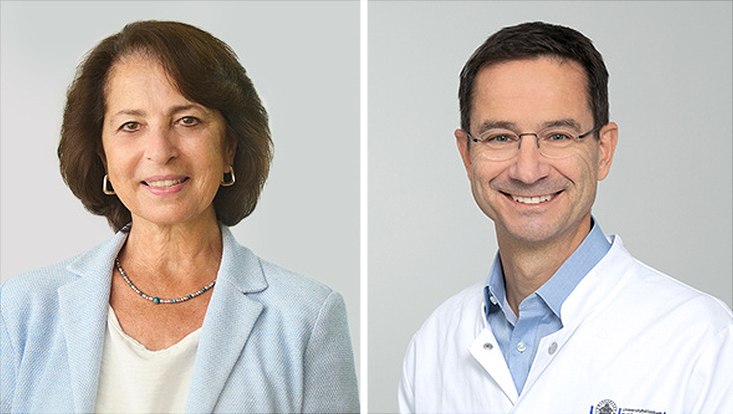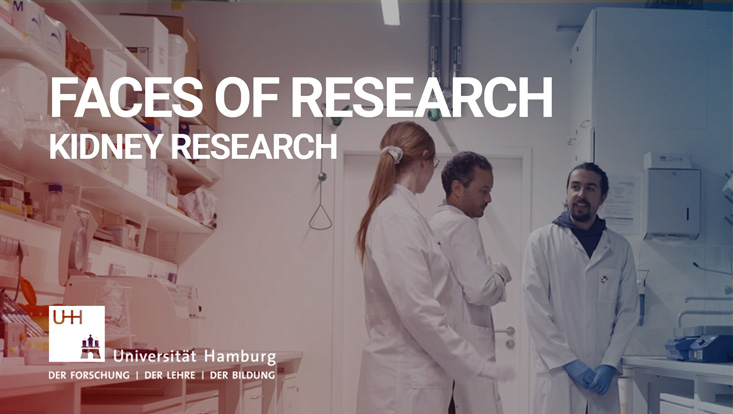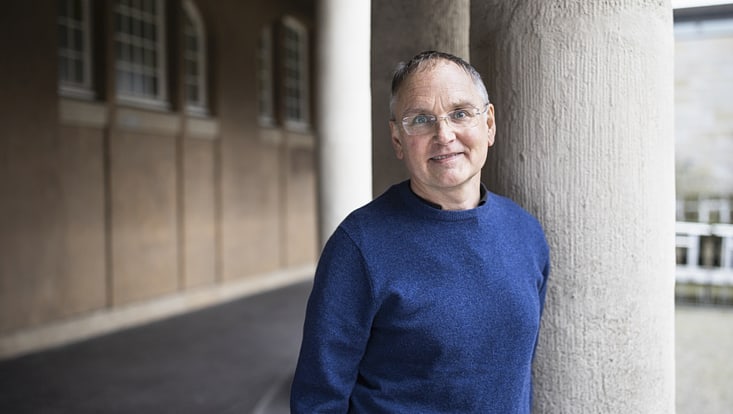€13 million from the German Research FoundationNew Collaborative Research Center for Liver Research
25 November 2024, by Newsroom editorial office

Photo: UKE
The German Research Foundation has approved a new collaborative research center for liver research. The new CRC 1700 will focus on the regulation of immune responses in the liver that are vital to the health of the entire organism. The new research focus, involving researchers from the University of Hamburg and from Munich, Berlin, and Kiel, will receive €13 million in the next 4 years.
The CRC 1700 Immune Regulation in the Liver: from Homeostasis to Disease will be headed by Prof. Dr. Christoph Schramm from the I. Department of Medicine at the University Medical Center Hamburg-Eppendorf (UKE) and scientific director of the Martin Zeitz Center for Rare Diseases, and Prof. Dr. Maura Dandri, professor of viral hepatitis in the I. Department of Medicine at the UKE.
“The German Research Foundation’s approval for collaborative research centers (CRC) is always a major achievement and marks an important milestone. Universität Hamburg—University of Excellence and the UKE demonstrate their cooperative, outstanding work in liver research with this grant. The funding underscores our top research on global challenges and our scientific commitment to society. Congratulations to everyone involved! With your excellent work, you strengthen Hamburg as a center of research,” said Prof. Hauke Heekeren, president of the University of Hamburg.
“We are especially delighted about the new CRC, which will lead liver research, which has been conducted very visibly at the UKE for many years, into the future. The new CRC 1700 incorporates both basic research and clinical research, thereby responding to the great desire for the greatest possible variety in university medicine when it comes to understanding diseases. We congratulate Prof. Dandri and Prof. Schramm on this extraordinary success,” said Prof. Dr. Blanche Schwappach-Pignataro, dean of the Faculty of Medicine and UKE board member.
Liver diseases are widespread and burden the health system
“Liver and biliary diseases are currently the second-most common cause in Europe of invalidity and inability to work, which is a significant health burden for patients and a major economic burden for health systems and society,” explained CRC spokesperson Prof. Schramm. Sustaining healthy tissue via the immune system is an especial challenge in the liver because a number of foreign substances known as antigens end up in the liver as a result of liver metabolism and signals from our diet and intestinal microorganisms via the portal vein and the mucus membranes of the bile ducts. Because an aggressive immune response to all of these antigens would cause grave tissue damage, the liver has developed effective mechanisms for controlling infection and creating immunity. However, this immunity can result in the greater survival of cancer cells and viruses because the immune system cannot recognize these and eliminate them in time.
“The central hypothesis of the CRC 1700 is that the regulation of immune responses constitutes a key function of the liver that in turn determines the health of the entire organism. We presume that a problematic orchestration of cellular interaction and signal transmission in the liver can lead either to infections transmitted by the immune system and autoimmune diseases or to ongoing infections and cancer,” said Prof. Dandri, co-spokesperson of the new CRC. Understanding the mechanism of immune regulation in the liver that drives the development of tolerance or active immunity will form the basis for targeted treatment to modulate immune reactions in the liver and heal grueling liver and gallbladder diseases.
The new consortium, for which the 4-year funding will begin on 1 April 2025, will bring together clinical researchers, basic researchers, and bioinformatics experts from the UKE, the University of Hamburg, the Max Delbrück Center in Berlin, TUM: The Entrepreneurial University of Munich, and Kiel University.
“In this way, we will create an interdisciplinary environment full of synergies by combining the latest ‘omics’ and imaging technologies with hepatological expertise and that will be fed by our extensive and well-characterized cohorts of patients, clinical studies initiated by researchers, and the large number of human biosamples that we collect in our biobank,” concluded Prof. Schramm.
Nine CRCs at the University of Hamburg
Collaborative research centers are long-term, interdisciplinary research collaborations that are funded in 3 phases over a maximum of 12 years. This how the German Research Foundation supports excellent and extensive collaborative projects in basic research. At the University of Hamburg, there are currently 8 CRCs in addition to the new CRC 1700. The University takes part in another 17.


